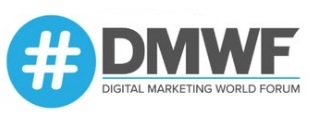
What do the NHS, Fortnite and US Customs and Border Protection all have in common? The answer may surprise you, but they have all had major data breaches since November 2018.
These sorts of privacy scandals never seem to leave the headlines, and people are right to be concerned about who they share their data with and why. Indeed, data ownership has been a major public concern since the Cambridge Analytica scandal and people are taking steps to control their digital footprints. That’s having a knock on effect on data sharing.
With online security fears on the up, people are wising up about how their data is being used and relying on tools like Guard (an AI tool that analyses pages of dense copy), to help them understand privacy policies before signing on the dotted line.
However, this indicates that people are willing to share their data, they just want to know where it is going. Many are still happy to relinquish their data but expectations of genuine value exchange are increasing and brands and marketers have to walk a fine line.
Being clear about how and why data is being used is essential. While 69% say they would steer clear of a brand if it used info invasively, 73% of consumers are willing to share more data if a company is transparent. Simply put, integrity is essential for companies looking to learn more about their users. Brands have been responding by introducing empowering features, from Apple’s easy-to-read privacy pages to Facebook’s photo transfer tool (which lets users transfer their FB pictures to Google Photos).
Despite people’s willingness to share data, users may not realise how often their personal data is shared online. Some companies, for example, even analyse the unique way people tap, scroll, and type on their smartphones. However, increasing awareness is causing anxieties around the issue to rise, making transparency from companies all the more important.
Amid all this, brands are facing a trust deficit. Just 34% of people trust the brands they use or buy according to the Edelman Trust Barometer. This undoubtedly impacts how much consumers are willing to tell them. The reward for data sharing better be good.
People no longer see giving away their details as a necessary thing. People know the value of their data to organisations and are demanding a quid pro quo relationship. For example, 57% of global consumers are often willing to share their data in exchange for personalised offers or discounts.
This presents opportunities for brands capable of offering incentives that are tailored to the individual. However, this also presents a challenge for brands, as the value consumers place on their data may change in the future. For now, people may feel like 10% off, or a free t-shirt in exchange for a name, email address and birthday is a fair trade, but that could change. Brands have to be sensitive to consumers’ perceptions of value.
Sharing data with companies can also help people to feel more, rather than less protected. Connectivity and safety are key motivations for data sharing. Location sharing tools have gained in popularity in recent years as people see the value in letting their friends, family, and companies know where they are.
Brands like Apple have always made privacy their prerogative and Apps like Find My, which locates your Apple products, has the added benefit of both helping their users with the Apple privacy reassurance. Find My’s redesign, for example, asks users to opt into sharing and only retains information for 24 hours on encrypted servers. Other products and features like Safe Campus Smartwatches and Strava Beacon allow people to feel more protected by sharing their location with family and friends.
Data-sharing can have clear positive outcomes. Even so, reassurance that the user – not the brand – is in control is crucial. Brands need to prove appropriate value exchange for personal data, but what warrants ‘appropriate’ is likely to remain in a state of flux and must be constantly revisited.
 Interested in hearing leading global brands discuss subjects like this in person?
Interested in hearing leading global brands discuss subjects like this in person?
Find out more about Digital Marketing World Forum (#DMWF) Europe, London, North America, and Singapore.






